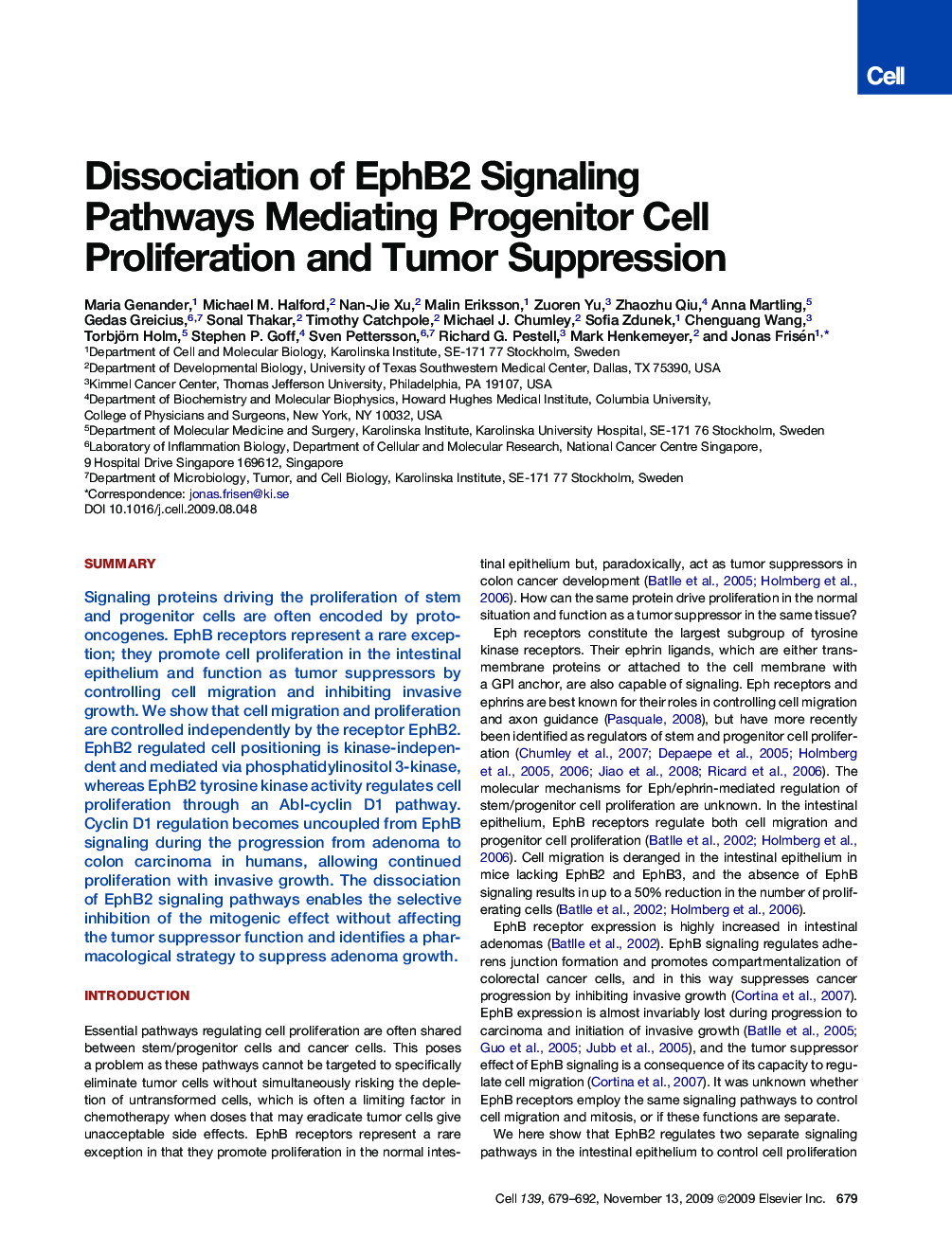| Article ID | Journal | Published Year | Pages | File Type |
|---|---|---|---|---|
| 2037398 | Cell | 2009 | 14 Pages |
SummarySignaling proteins driving the proliferation of stem and progenitor cells are often encoded by proto-oncogenes. EphB receptors represent a rare exception; they promote cell proliferation in the intestinal epithelium and function as tumor suppressors by controlling cell migration and inhibiting invasive growth. We show that cell migration and proliferation are controlled independently by the receptor EphB2. EphB2 regulated cell positioning is kinase-independent and mediated via phosphatidylinositol 3-kinase, whereas EphB2 tyrosine kinase activity regulates cell proliferation through an Abl-cyclin D1 pathway. Cyclin D1 regulation becomes uncoupled from EphB signaling during the progression from adenoma to colon carcinoma in humans, allowing continued proliferation with invasive growth. The dissociation of EphB2 signaling pathways enables the selective inhibition of the mitogenic effect without affecting the tumor suppressor function and identifies a pharmacological strategy to suppress adenoma growth.
